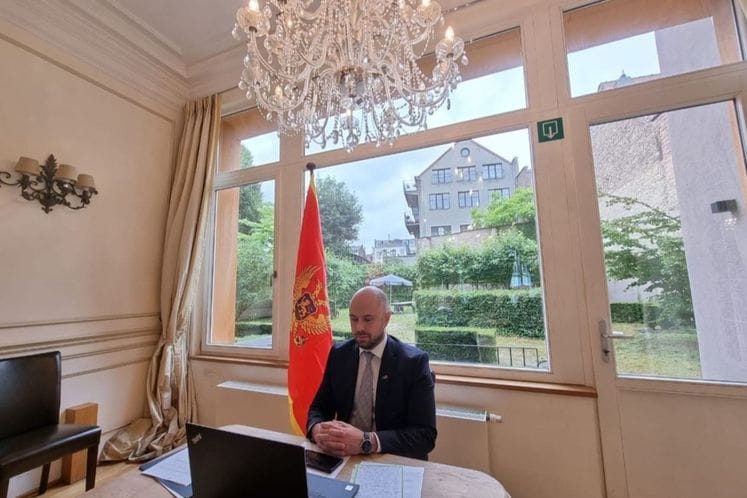- Government of Montenegro
Ministry of Foreign Affairs Radulović at the CEI ministerial meeting: Priority...
Radulović at the CEI ministerial meeting: Priority of bringing the epidemic under control, regional cooperation the most powerful tool in repairing the consequences

Montenegro's priority, as chair of the Central European Initiative (CEI), for the second year in a row, is to bring the pandemic under control. The global vaccination campaign is a light at the end of the tunnel and no one is safe until everyone is safe. This is an essential precondition for starting our economies, increasing the region's attractiveness for investors and creating new jobs - said Foreign Minister Djordje Radulovic at the ministerial meeting of CEI member states, which was held today in a virtual format. Opening the meeting, the Foreign Minister said that regional cooperation is the most powerful tool in repairing the consequences of COVID-19.
CEI Secretary General Roberto Antonione said that multilateralism and regional cooperation are more important than ever, and that the historical challenge is to stay united, especially given the consequences of the pandemic. He stressed that the CEI Executive Secretariat is an important partner to member states in strengthening economic and parliamentary diplomacy, as well as engaging young people.
- Building cooperative ties towards European integration, sustainable development and recovery is a strong counterweight to the revival of nationalism and the potential creation of dividing lines in Europe - said Antonione, emphasizing the importance of joint efforts in building the future.
WHO Regional Director for Europe Hans-Henri Kluge praised the efforts of CEI member states in the process of immunization of the population, calling on them to respect current epidemiological measures to protect the lives of all citizens.
The meeting was attended by heads of diplomacy and deputy ministers and state secretaries of 17 member states of the Central European Initiative, as well as high representatives of the Adriatic-Ionian Initiative, the Black Sea Economic Cooperation Organization, the Baltic Sea Council, the European Bank for Reconstruction and Development, the OSCE, European Commission and the Regional Cooperation Council.
